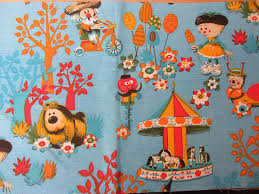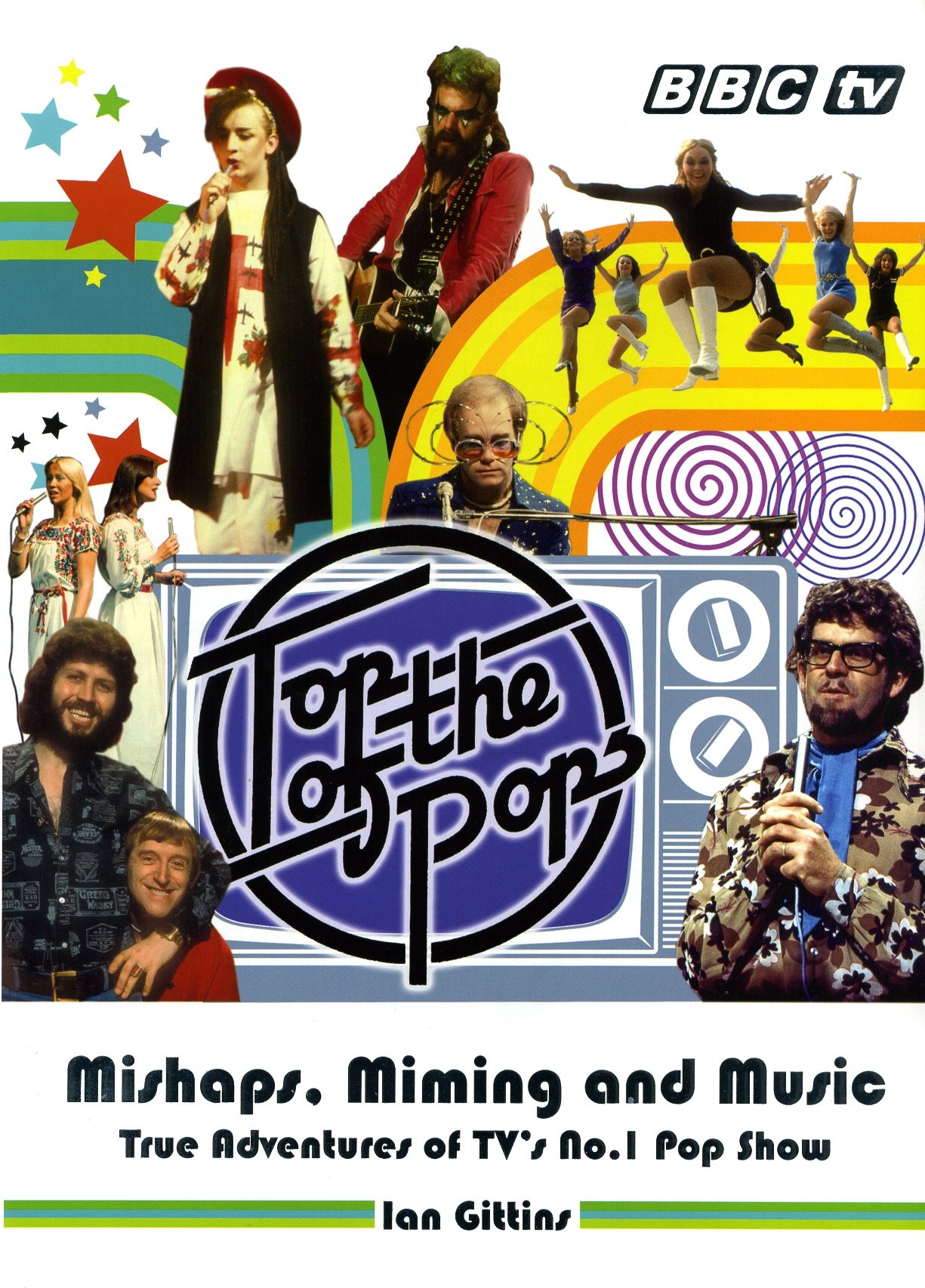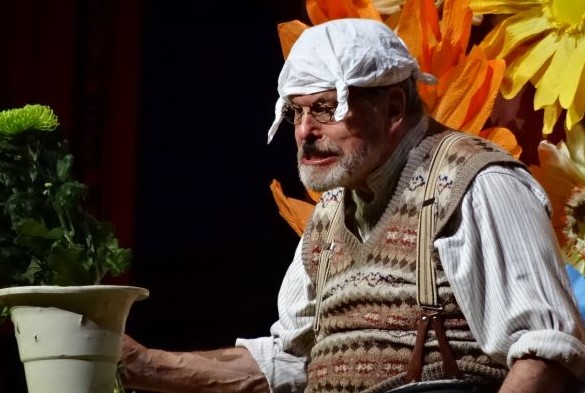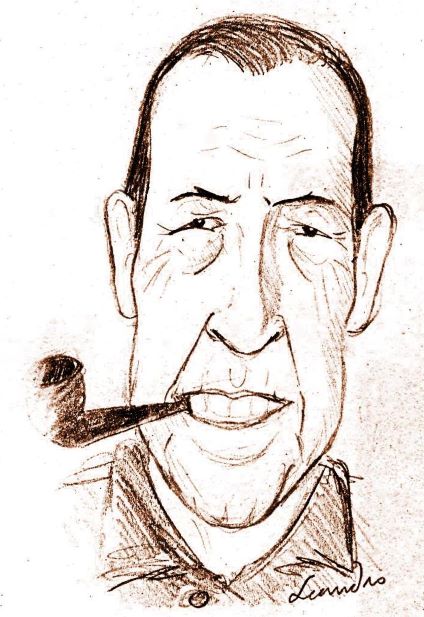Culture is ordinary: One hundred years of the Beeb

From Daleks to Strictly, Mark Perryman explores the meaning of the BBC at 100
For decades those of us of a certain age have been able to measure our lives out with episodes from the BBC. Playschool for early years (remember them?) with Brian Cant and Floella Benjamin looking after our every need – so long as the TV was on. Not forgetting the best maths teacher we never had, Johnny Ball. The fact Johnny 's daughter Zoe came to be the media face of 1990s ladettes via her stint on BBC Radio One, before graduating in the 2010s to presenting on Radio 2, only adds to this sense of us as listeners and viewers growing up and old with this great British institution.

Primary school years coincided with the Magic Roundabout, a five-minute dose of the magical just before tea time. An extraordinary, and total, reinvention of the original French animation to give Dougal, Zebedee, Brian and more, an entirely new, and much-loved, meaning. 'Time for bed?' Yes please, leave all the nasty news for the grown-ups to endure!

Blue Peter was more didactic, though in a kindly way. From the 'Get down Shep!' of John Noakes via that elephant dropping an almighty poo on the studio floor, to creating all kind of d-i-y artefacts with 'sticky-back plastic' when all of us trying it at home knew it was Sellotape! Achieving a Blue Peter badge became the not-so-secret ambition of the aspirational child.

Teendom dawned along with the Thursday night post-supper treat of Top of the Pops. This was Glastonbury, The Brixton Academy, and looking good, before most of The Arctic Monkeys were born, not on the dance floor but in our living rooms. Dictated by whatever was topping, rising, bubbling under the week's charts as broadcast live by Radio One the preceding Sunday evening, TOTP was broad enough to be the first introduction for many to Bowie, reggae, punk, Two Tone and a lot more.
But the real insight into all that music had to offer beyond the charts was provided for punky-indie adolescents by the incomparable John Peel broadcasting on Radio One from 10pm, a strictly under-the-bedclothes night-time pleasure for those still of school age.
The BBC had a knack of conjuring up shows which were perfect for growing up with. Doctor Who has changed an awful lot from the era of William Hartnell, Patrick Troughton and Jon Pertwee. Via regeneration, after regeneration, David Tennant, Jodie Whittaker and Ncuti Gatwa are not the same as their Whovian forebears. Yet so many continuities exist to provide reassurance. Daleks, exterminate! Where would we be without them? Modernisation, as we've learned from politics, has its limits.

Not only that, change can also serve to disappoint. Monty Python existed on the outer edges of English surrealism. It was a miracle the show was ever broadcast – there had never been anything quite like it before, nor anything like it since either. The dead parrot, the four Yorkshiremen, the People's Front of Judaea not the Judaean People's Front achieving a crossover on the big screen to the popular that few of a surrealist disposition achieve, or more likely even seek. John Cleese, Minister of Python's Silly Walks, with Fawlty Towers moved this Pythonesque caricature of Englishness to an even bigger and broader audience. The fact John has now himself become a caricature of Basil, his most famous character, is for many a grave disappointment. Or is it perhaps rather the most surreal, ridiculous consequence imaginable?
1968 was a year of revolt. The Mai events in Paris, the Prague Spring, the Tet Offensive in Vietnam, with communist revolutionaries reaching the very edge of the Saigon US Embassy compound. Meanwhile in good old Blighty something is stirring on the seafront of Walmington-on-Sea. Yes, '68 really did mark the first broadcast of Dad's Army, a defiantly and most particular English version of anti-fascism. The bank manager, his assistant manager and junior clerk were united across class and status divisions with the local butcher, funeral director, seaside retiree, local spiv and more, against Hitler and what his stormtroopers would do to their beloved town.
OK so it wasn’t exactly the Anti-Nazi League but for a comedic version of the breadth and reach of the wartime popular front against fascism, none will ever match Mainwaring, Wilson, Pike, Frazer, Godfrey, Walker but most of all Lance Corporal Jones. As Jones endlessly reminded us about fascists, 'they don't like it up 'em'!

Does any of this really matter? For some the BBC is a century-old voice of the Establishment. For others it’s a cabal of the woke. But as Raymond Williams sought to teach us, 'culture is ordinary'. For most people, it is in the nooks and crannies of children's TV, soaps, celebrity-led reality TV, and comedy that ideas are formed, dismantled, remade, rather than simply via the news. Stuart Hall (no, not the disgraced former BBC It's a Knockout Presenter, the other one, the cultural theorist) applied Williams's premise to an entirely new way of 'doing' politics:
It is through culture that processes of social change make themselves most dramatically visible. Culture is a constitutive dimension of society.
Hall believed that popular culture was the site where everyday struggles between dominant and subordinate groups are fought, won, and lost. Culture thus has to be thought of as an active, key part of society. In the process politics becomes inseparable from popular culture, and traditional class alliances are eroded and new ones formed by the mass media. From Daleks to Strictly, this is why the BBC not only informs and entertains, but matters to us all. Happy hundredth, BBC!
Note: Philosophy Football has a BBC Centenary T-shirt range, including a half-price offer on David Hendy's The BBC: A People's History from here.


Mark Perryman
Mark Perryman is co-founder of the self-styled ‘sporting outfitters of intellectual distinction’ aka Philosophy Football. He is the author of Ingerland: Travels with a Football Nation.
